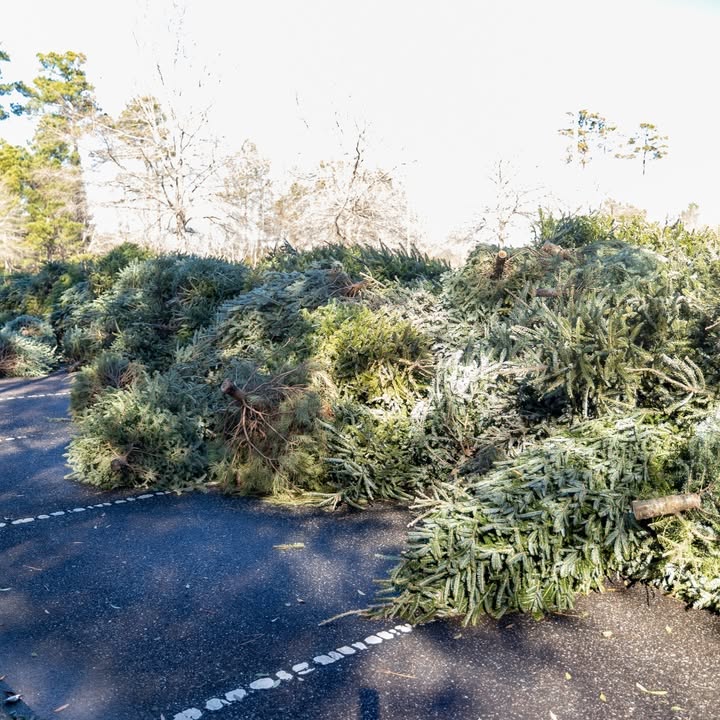- Overview of the Tree-Cycling Program and Its Benefits
- Importance of Dune Ecosystems and the Role of Christmas Trees
- Alternatives for Tree Disposal in Virginia Beach
- Broader Implications for Wildlife Conservation
- Community Involvement and Local Conservation Initiatives
The Tree-Cycling program recently hit a significant benchmark: reaching maximum capacity and ceasing the acceptance of additional trees. This initiative has been pivotal in supporting the Marine Stewards America’s efforts to restore local sand dunes. The program’s temporary closure is a testament to the overwhelming community response, reflecting collective environmental consciousness.
The use of discarded Christmas trees in environmental restoration projects has notable advantages. When strategically placed, these trees act as natural barriers against wind and water erosion. Their branched structures trap sand, aid in dune formation, and foster a conducive environment for dune-stabilizing plants. Over time, as these trees decompose, they contribute organic matter, enriching the soil and promoting plant growth, which is vital for dune stabilization.
Dunes are crucial components of coastal ecosystems, serving several ecological functions. They act as buffers against storm surges and high tides, protecting inland areas from flooding. Additionally, dunes provide habitat for various species, many of which are adapted to these harsh conditions and depend on dunes for survival. By bolstering dune ecosystems with discarded Christmas trees, we protect these critical habitats and the biodiversity they support.
With the program closed to further tree donations, residents of Virginia Beach must resort to alternative disposal methods. The city offers a practical solution by collecting Christmas trees as regular yard waste on scheduled collection days. Residents are encouraged to place trees curbside, ensuring they are devoid of any stands, tinsel, lights, or ornaments. This process ensures that discarded trees are repurposed effectively, maintaining the sustainability ethos of the original project.
Understanding the broader implications of such conservation efforts can provide deeper insights into wildlife management and ecological balance. The success of the Tree-Cycling initiative is not just about dune restoration; it reflects broader environmental stewardship and a communal effort to uphold biodiversity and ecological integrity. By participating in local conservation projects, community members contribute to long-term ecological stability, benefiting numerous wildlife species.
Community involvement is fundamental to the success of conservation initiatives. The enthusiasm shown by Virginia Beach residents underscores the power of collective action in environmental protection. Such programs illuminate the vital connection between humans and their natural surroundings, fostering a sense of responsibility and stewardship. Through collaboration with organizations such as Marine Stewards America, communities can engage in transformative projects that have lasting ecological benefits.
This Tree-Cycling update highlights the capacity of grassroots initiatives to drive meaningful change. It exemplifies how local actions can contribute to global conservation efforts. By understanding and participating in these initiatives, individuals can play an integral role in preserving biodiversity and ensuring the health of ecosystems for future generations.
*****
Source Description
Tree-Cycling Update: we are at max capacity and can no longer accept trees! 🌲🌲🌲 Thank you to all who donated your trees to help @marinestewardsamerica restore local sand dunes. If you are a Virginia Beach resident and still have a live-cut tree to dispose of, Christmas trees are collected as regular yard waste on your normal collection day. Trees must be curbside and free of their stand, tinsel, lights and ornaments.


